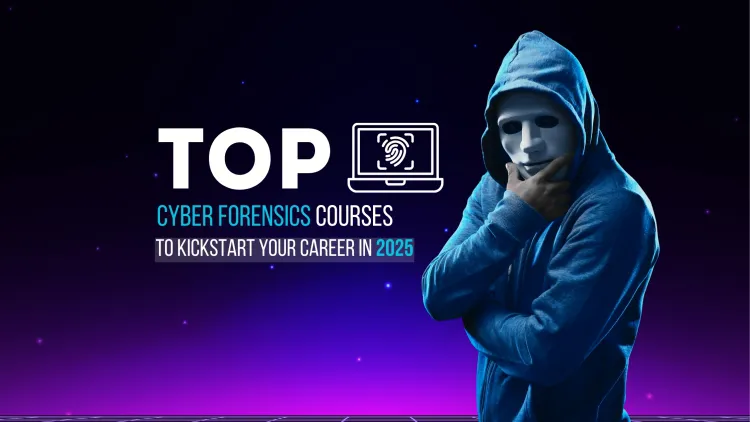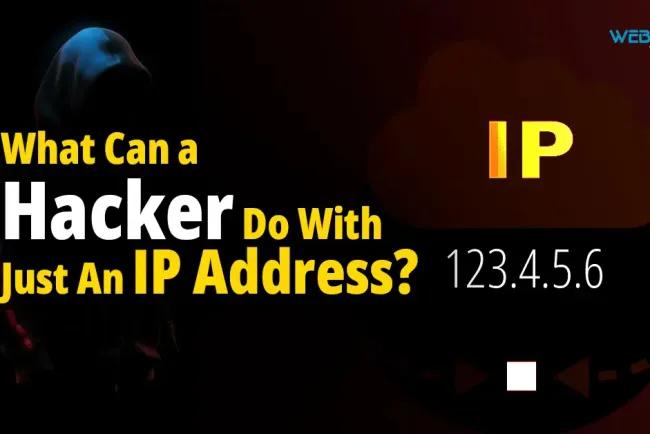Top Cyber Forensics Courses to Kickstart Your Career in 2025
This blog highlights the importance of cyber forensics and provides an overview of the top courses available in 2025. From certifications like CCFE and GCFA to advanced degrees like Purdue’s Master’s in Cyber Forensics, these programs offer valuable skills in digital investigation and cybersecurity. Choosing the right course based on content, industry recognition, and hands-on training can open up lucrative career opportunities.

In today’s digital age, cyber forensics has become a critical field in combating cybercrime and securing digital evidence. With the increasing demand for skilled professionals in this domain, pursuing the right course can set you on the path to a rewarding career. This blog explores the top cyber forensics courses in 2025 that can help you build expertise in digital investigation and cybersecurity.
What is Cyber Forensics?
Cyber forensics, also known as digital forensics, involves the identification, recovery, and analysis of digital evidence to investigate cybercrimes. It plays a vital role in:
- Recovering lost data
- Investigating security breaches
- Providing digital evidence for legal cases
- Preventing future cyberattacks
With the rise of sophisticated cyber threats, organizations require professionals who can uncover digital footprints and maintain the integrity of data during investigations.
Why Pursue a Career in Cyber Forensics?
The demand for cyber forensics experts is growing rapidly due to:
- Increasing cyberattacks on organizations.
- Rising regulatory requirements for data protection.
- High demand for skilled professionals in law enforcement, government, and private sectors.
A career in cyber forensics offers:
- Lucrative salaries
- Exciting job roles like Digital Forensic Analyst, Incident Responder, and Malware Analyst.
- Opportunities to work in various sectors, including law enforcement, cybersecurity firms, and financial institutions.
Top Cyber Forensics Courses in 2025
1. Certified Computer Forensics Examiner (CCFE)
- Provider: International Society of Forensic Computer Examiners (ISFCE)
- Overview: Focuses on the practical aspects of digital forensics, including file recovery, disk imaging, and evidence analysis.
- Key Topics:
- Data recovery techniques
- File system analysis
- Legal considerations in digital forensics
- Ideal For: Beginners and mid-level professionals looking to specialize in computer forensics.
2. GIAC Certified Forensic Analyst (GCFA)
- Provider: Global Information Assurance Certification (GIAC)
- Overview: Covers advanced incident response and forensic investigation techniques.
- Key Topics:
- Advanced disk forensics
- Memory analysis
- Network traffic analysis
- Ideal For: Security professionals handling complex digital investigations.
3. Post Graduate Diploma in Digital Forensics and Cyber Security
- Provider: SANS Technology Institute
- Overview: Combines theoretical knowledge with hands-on training in digital forensics and cybersecurity.
- Key Topics:
- Malware forensics
- Incident response
- Cyber threat intelligence
- Ideal For: Graduates looking to enter the field with a comprehensive understanding of forensics and cybersecurity.
4. EnCase Certified Examiner (EnCE)
- Provider: OpenText
- Overview: Focuses on mastering the EnCase Forensic software, a widely used tool in digital investigations.
- Key Topics:
- Digital evidence recovery
- File signature analysis
- Evidence documentation and reporting
- Ideal For: Professionals aiming to become experts in using EnCase for forensic investigations.
5. Master’s Degree in Cyber Forensics and Information Security
- Provider: Purdue University
- Overview: Offers an in-depth academic approach to cyber forensics and information security.
- Key Topics:
- Digital evidence handling
- Cybercrime investigation
- Cryptography and secure communications
- Ideal For: Individuals aiming for leadership roles or academic careers in cyber forensics.
How to Choose the Right Course
When selecting a cyber forensics course, consider the following factors:
- Course Content: Ensure the course covers key aspects of digital forensics, including practical skills and legal implications.
- Industry Recognition: Opt for certifications recognized by leading organizations and employers.
- Hands-On Training: Look for courses that provide real-world experience with forensic tools and techniques.
- Career Goals: Choose a course that aligns with your professional aspirations, whether it’s technical expertise or leadership roles.
Benefits of Cyber Forensics Courses
Pursuing a course in cyber forensics offers numerous advantages, including:
- Skill Development: Gain expertise in tools like EnCase, FTK, and Wireshark.
- Career Opportunities: Open doors to high-demand roles in government agencies, law enforcement, and private sectors.
- Professional Networking: Connect with industry experts and like-minded professionals.
- Certifications: Enhance your resume with globally recognized credentials.
Conclusion
Cyber forensics is an exciting and rapidly evolving field, offering numerous opportunities for those with the right skills and certifications. By enrolling in one of the top cyber forensics courses in 2025, you can build a strong foundation, enhance your career prospects, and contribute to the fight against cybercrime. Start your journey today and become a vital asset in the cybersecurity landscape.
FAQ:
1. What is cyber forensics?
Cyber forensics involves identifying, recovering, and analyzing digital evidence to investigate cybercrimes and security breaches.
2. Why should I pursue a career in cyber forensics?
A career in cyber forensics offers lucrative salaries, exciting job roles, and opportunities to combat cybercrime across various industries.
3. Which are the top cyber forensics courses in 2025?
Some of the top courses include CCFE, GCFA, EnCE, and Purdue’s Master’s in Cyber Forensics and Information Security.
4. What skills will I gain from cyber forensics courses?
You’ll learn skills like data recovery, malware analysis, incident response, and using forensic tools like EnCase and FTK.
5. Are cyber forensics certifications recognized globally?
Yes, certifications like GCFA and EnCE are highly regarded in the cybersecurity industry worldwide.
6. What tools are commonly used in cyber forensics?
Popular tools include EnCase, FTK, Wireshark, and X-Ways Forensics.
7. How long does it take to complete a cyber forensics course?
The duration varies by course, ranging from a few weeks for certifications to 1-2 years for advanced degrees.
8. Can beginners pursue cyber forensics courses?
Yes, many courses like CCFE are designed for beginners looking to enter the field.
9. What career opportunities are available after completing a cyber forensics course?
You can work as a Digital Forensic Analyst, Incident Responder, Malware Analyst, or Cybersecurity Consultant.
10. Is hands-on training essential in cyber forensics?
Absolutely. Practical experience with forensic tools and real-world scenarios is crucial for a successful career in cyber forensics.





![[2025] Top 100+ VAPT Interview Questions and Answers](https://www.webasha.com/blog/uploads/images/image_100x75_6512b1e4b64f7.jpg)








